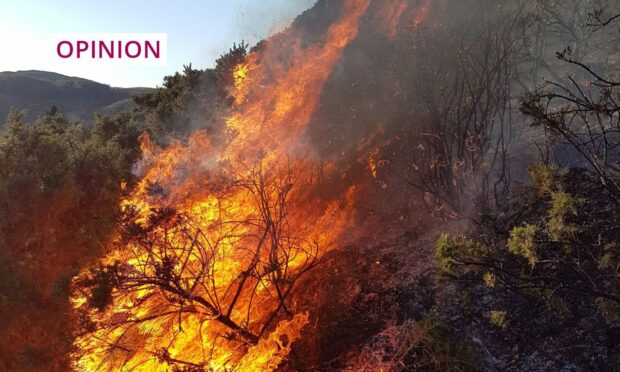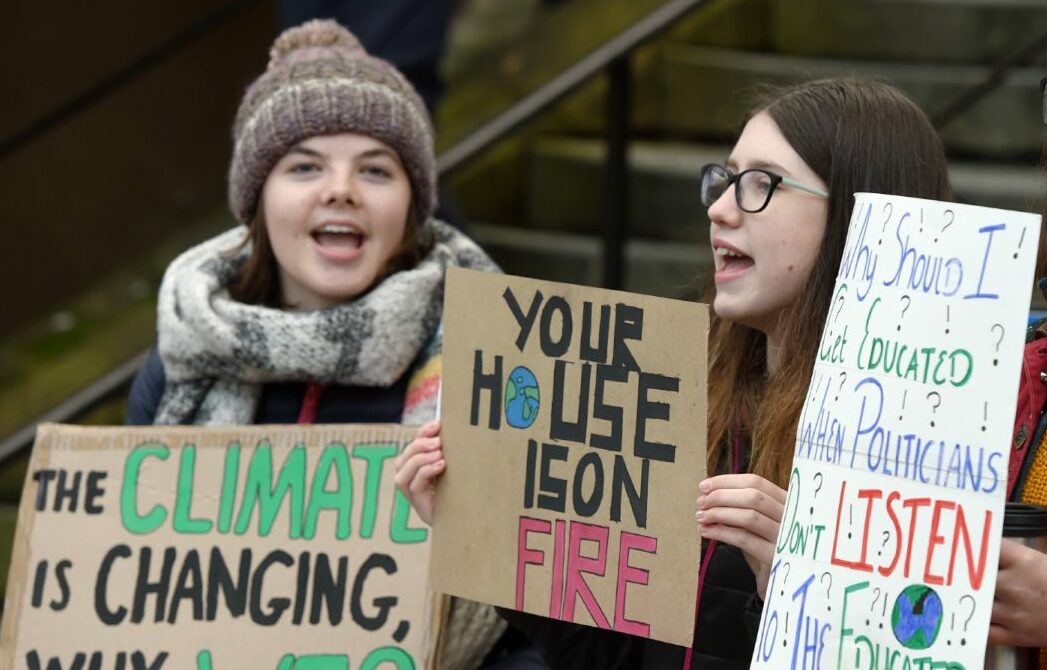When the aliens search the ruins of our cities, assuming we don’t change trajectory, they may find out enough about how we lived to decide that “net zero targets” should be our epitaph.
Perhaps they’ll discover an ancient newspaper and decipher some right-wing blowhard’s claims that these targets are too much, too fast, or simply unnecessary. The truth is the absolute opposite. They’re not even close to adequate for the crisis we face.
I’d like to say net zero targets are fine apart from the words “net”, “zero” and “targets” – but even that’s not true.
First, they measure the wrong thing: emissions, not footprint. If steel used here was still being made at Ravenscraig, it would count against Scotland’s targets, but steel shipped here doesn’t. A perverse incentive to do social and economic harm, and no encouragement to use lower-carbon materials.
Measuring emissions alone would be flawed, even if it mattered where carbon dioxide (CO2) is physically put into the atmosphere. But, of course, that’s completely immaterial. Then, when manufacturing is offshored, those same blowhards say: “Why should we act when China’s emissions continue to rise?”
The timescale is a problem, too. Scottish Government ministers speak proudly about the fact that their target is 2045, not 2050. But what we do in the 2040s is almost irrelevant compared to what we do now.
Long-term targets plus short-term political objectives equals procrastination. And Scotland’s annual targets show this very neatly. Over the 12 years we have data for since the environmental targets were set, they’ve only been met four times. And one of those was in 2020, when the pandemic reshaped our lives.
Even the deeply cautious UK Committee on Climate Change says Scotland’s targets are in danger of becoming meaningless.
‘Forget about net zero, we need real zero’
The worst element of all might be “net”, though. This is an invitation to the fossil majors to promote endless smokescreens and pipe dreams.
They claim hydrogen is a fuel, but it’s just a very lossy method of transmitting energy, with less than one molecule in 1,000 coming from renewables. In decades to come, there might be a role for renewable hydrogen, and for direct air capture, which is even less efficient. Right now, both are a distraction from ending the burning of fossil fuels.
Carbon capture and storage is similar nonsense, aimed at politicians terrified of change. BP, in emails obtained by the US Congress, calls it enabling “the full use of fossil fuels across the energy transition and beyond”.
A tonne of CO2 saved this year is far more valuable than one saved in two decades’ time
Shell’s flagship Quest facility captured five million tonnes of CO2 up to 2019, which sounds nice until you read it also caused 7.5 million tonnes of emissions.
The aim is to create an illusion that they will do better in future – o Lord, make me chaste, but not yet. But as Greta Thunberg put it: “Forget about net zero, we need real zero”.
Although, as I think she’d agree, “zero” isn’t ideal. If everything was decarbonised – transport, heat, manufacturing and so on (and we have most of the technology to do so already) – then nature restoration on a transformative scale would be carbon negative. That should be the aim, especially given that we profited disproportionately from industrialisation, while the worst climate harms are occurring in countries that benefitted least.
Acting immediately is absolutely vital
The real test should be this: is Scotland reducing its carbon footprint as quickly and fairly as possible? Keep targets, perhaps, if they measure the right thing. But a tonne of CO2 saved this year is far more valuable than one saved in two decades’ time.
Moving faster – during a climate breakdown on a scale not expected until the second half of this century – would bring many other benefits.
Decarbonisation requires a vast amount of new infrastructure: there’s work to be done and money to be made. We handed over a lead on wind turbines to Denmark and China. But, as US President Joe Biden’s Inflation Reduction Act (substantially about emissions reduction in practice) shows – investment really pays off.
One benefit of decarbonisation on the scale needed, beyond helping the climate itself, would be social. Britain has the air of a country circling the plughole. This would be an inspiring national project, on the scale of John F Kennedy’s pledge to land on the moon by the end of the 1960s, and more useful.
A quarter of the public rate climate change and the environment as a top concern. An ambitious and even profitable response to this existential crisis would be genuinely reassuring. I suspect one of the many causes of the decline in mental health is fear about the planet we will live on, let alone the one the next generation will face.
Somehow, the Westminster parties instead competed to see how fast they could U-turn on environmental policy, during the hottest July in recorded human history. Devolution is on an ever-tighter leash, but Scotland can and must show leadership and prove things can be done differently.
James Mackenzie is a freelance media and public affairs consultant and former head of communications for the Scottish Greens


